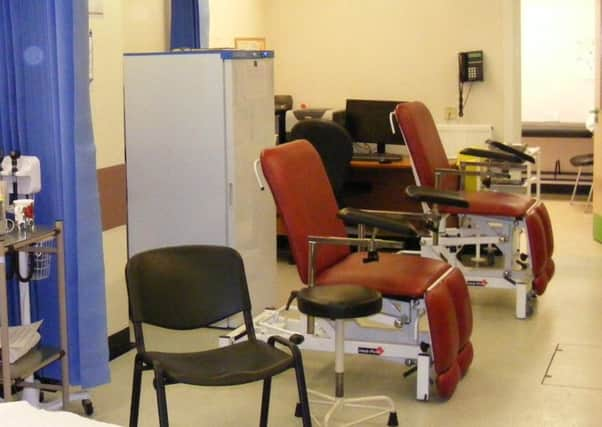Sleaford GP surgery put into special measures after being rated '˜inadequate' in CQC inspection


An inspection team from the CQC visited Sleaford Medical Group on April 13 for a routine inspection and published its findings yesterday (Thursday, July 6) after a follow up visit in June.
The practice had two years ago been rated ‘good’.
In his summary of the report of the comprehensive inspection, Prof Steve Field, Chief Inspector of General Practice rated the practice as inadequate after finding two of the five core areas of inspection - whether the practice was safe and well-led, were found to be inadequate, while find the three other areas of being effective, caring and responsive, required improvement.
Advertisement
Hide AdAdvertisement
Hide AdThe service for all six population groups was also rated inadequate as the concerns which led to the ratings apply to everyone using the practice. There were some areas of good practice highlighted too.
Prof Field said in his summary letter on the report: “I am placing this service in special measures. Where a service is rated as inadequate for one of the five key questions or one of the six population groups and after re-inspection has failed to make sufficient improvement, and is still rated as inadequate for any key question or population group, we place it into special measures.”
The practice has six months to demonstrate sufficient improvement, but if still rates as inadequate in any key aspect, the provider can be prevented from operating the service by cancelling their registration or varying the terms of their registration if they do not improve.
Prof Field continued: “The service will be kept under review and if needed could be escalated to urgent enforcement action. Where necessary, another inspection will be conducted within a further six months, and if there is not enough improvement we will move to close the service.
Advertisement
Hide AdAdvertisement
Hide Ad“Special measures will give people who use the service the reassurance that the care they get should improve.”
Prof Field explained: “Patients were at risk of harm because some systems and processes in place were not effective to keep them safe. For example, patient safety alerts, monitoring of patients on high risk medicines, medication reviews, monitoring of the cold chain and management of patients with urinary tract infections.”
The practice must improve the process in place for the management of risks to patients and others against inappropriate or unsafe care.
It must ensure pathology results are reviewed to ensure action is taken where appropriate and they are filed on the patient record in a timely manner.
Advertisement
Hide AdAdvertisement
Hide AdIt must ensure there are formal systems for assessing and monitoring risks and the quality of the service provision.
It must gather patient views and experiences to ensure the services provided reflect the needs of the population served having failed to act on criticisms in last July’s patient survey.
It must review the systems and processes in the dispensary to ensure they are effective, ensure there is leadership capacity to deliver all the improvements, as it was not clear who took overall responsibility for the surgery, and the practice must develop ways to monitor and improve patient satisfaction.
Learning from complaints must be discussed and shared. It must ensure trends are analysed and action is taken to improve the quality of care as a result, including formalising meetings with staff to support staff feedback and maintain records of discussions with actions agreed upon.
Advertisement
Hide AdAdvertisement
Hide AdProf Field said: “Comments cards we reviewed told us that patients said they were treated with compassion, dignity and respect. They felt cared for, supported and listened to.”
But the practice did not have an active patient participation group and there was limited evidence to demonstrate that they proactively sought feedback from patients and staff.
In addition the provider should review procedures for carrying out regular balance checks of controlled drugs, ensure safeguarding registers are updated and actions documented in regard to children who do not attend for hospital appointments and ensure all staff have completed safeguarding training relevant to their role.
○ The Lincolnshire South West Clinical Commissioning Group has been contacted to respond on behalf of Sleaford Medical Group, we await their comments.